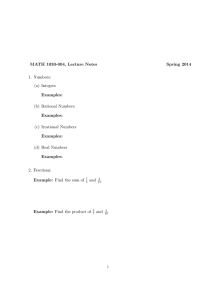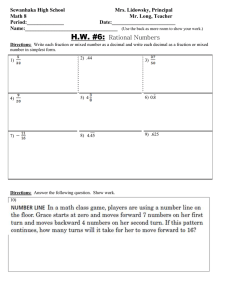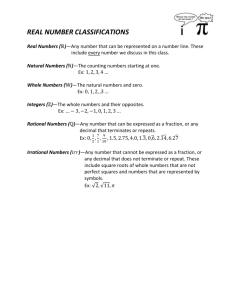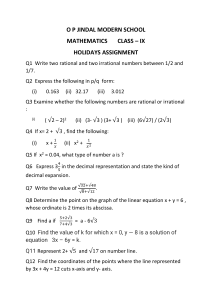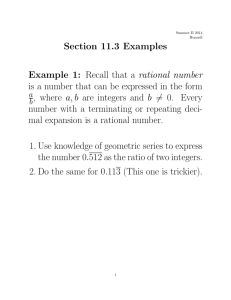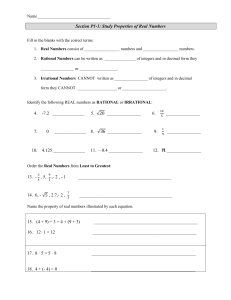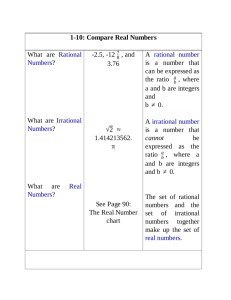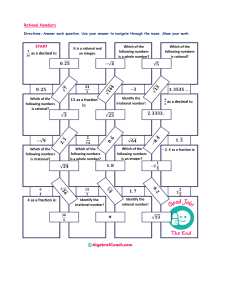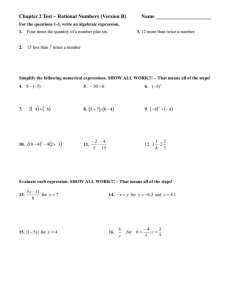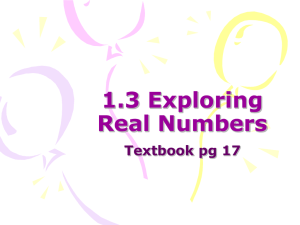1) Define: natural number integer prime number - Gilden-Math
advertisement
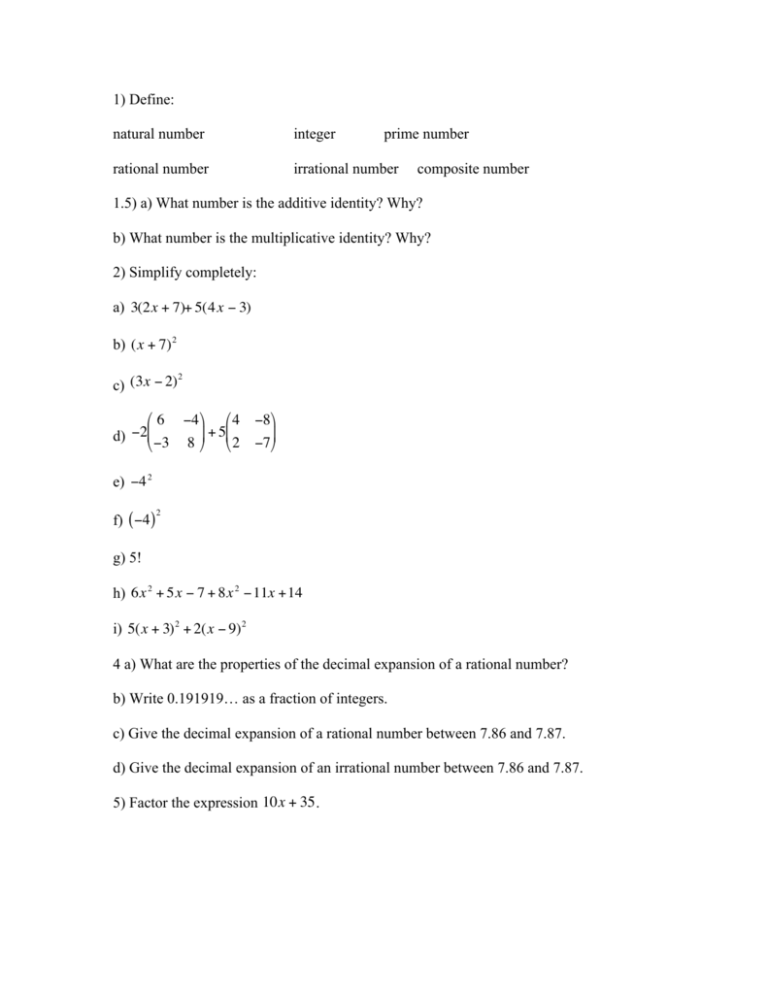
1) Define: natural number integer prime number rational number irrational number composite number 1.5) a) What number is the additive identity? Why? b) What number is the multiplicative identity? Why? 2) Simplify completely: a) 3(2x + 7)+ 5(4 x − 3) b) (x + 7) 2 € € € 2 c) (3x − 2) ⎛ 6 −4 ⎞ ⎛ 4 d) −2⎜ −3 8 ⎟ + 5⎜ 2 ⎝ ⎠ ⎝ −8⎞ ⎟ −7⎠ e) −4 2 € € € f) ( −4 ) 2 g) 5! h) 6x 2 + 5x − 7 + 8x 2 −11x +14 i) 5(x + 3) 2 + 2(x − 9) 2 € € 4 a) What are the properties of the decimal expansion of a rational number? b) Write 0.191919… as a fraction of integers. c) Give the decimal expansion of a rational number between 7.86 and 7.87. d) Give the decimal expansion of an irrational number between 7.86 and 7.87. 5) Factor the expression 10x + 35 . € 6) Simplify the fractions as much as possible. If a fraction is in lowest terms, say so. Remember, you can only cancel if the same quantity factors from the top and the bottom a) 4 x +12 10 7) a) € b) 4 x +12 6x + 3 c) 9x +12 6x + 3 335 lies between what two consecutive integers? € € b) What is wrong with this statement?: 25 is 5 or –5. € 8) Evaluate: 3xy 2 + 5xy x =3, y =−2 € 9) Define x # y = 3x – 4y. a) How much is 5 # (–6)? € b) Show that # is not commutative. 10) Show that 13 is a factor of 16! + 13. 11) Do the chapter test on page 125 of the textbook. Look over the chapter summary and chapter review on pages 120-124. 12) Do a 5 thru 9 check on 83.

